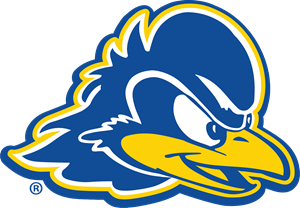Then there are the delightfully unexpected developments. Fairman’s expanded game meant he possessed even greater versatility, a coveted asset in a pro game with limited roster size. The Cannons selected him with the No. 11 overall pick in the second round of last week’s PLL draft.
Yet at an even more basic level, Fairman’s found a joy stemming from learning how to do something new, something of a fresh start but still in a familiar place.
“I think this year has been interesting in a lot of ways, but it’s also allowed me to find a new passion for lacrosse on a new side of the field,” Fairman said. “It’s kind of fun to go back to the very fundamentals of lacrosse and learn it at a new position. Focusing on the little things every single day that I never knew were important to playing defense, but really make or break the defense. Allowing myself to be a beginner again has been fun to me.”
He’s also thrived in a way that’s added considerable value to Maryland’s unbeaten run to this point. Fairman’s athleticism has translated well.
“People talk about his willingness to go back there, which is true and it’s a great story,” Donville said. “But I think people are looking past how well he’s playing the position, too. That’s been huge for us. He hasn’t just plugged the hole. He’s plugged it and is playing really, really well for us.”
One other bonus to the move is enhancing Maryland’s ability to ignite transition. These Terps have done so better than their predecessors under Tillman, with the 23-12 rout of Virginia on March 19 demonstrating how well Maryland can fare even against an opponent whose identity is rooted in thriving on chaos.
Fairman has three goals and three assists this year, hardly eye-popping numbers like his 25 goals and 17 assists as a sophomore in 2019. But he’s still the guy who ranks 36th in career points for the storied program, only now with an expanded skillset.
Still, ask Fairman for his favorite moments, and he’s quick to note the pleasure derived from helping make a defensive stop.
“I still think I’m a beginner and it’s all new to me, so if I can help the defense, because that’s my group, that almost means more to me,” Fairman said. “Of course, everyone loves transition. I can’t lie there.”
Fairman was an integral part of coaxing the Terps through the inherent difficulties of the pandemic protocols, and Tillman leaned on him to help ensure the team was making good decisions that wouldn’t sidetrack a season that ultimately ended with a Memorial Day loss to Virginia.
Those responsibilities aren’t surprising for Fairman, who also has helped organize a fundraiser for the Hope Street Foundation twice during his time as a Terp. Every player or coach who got his head shaved generated $1,000 for cancer research; Maryland raised $48,000 two years ago and another $27,000 this spring.
On the field, of course, he’s delivered a boost every bit as impressive in his final college season.
“I do think playing defense for him has kind of given him purpose,” Tillman said. “It’s like, ‘I’m here to help the team. We lost a couple guys, and I’m really giving value to this team,’ which he certainly did. But as an athlete, it’s almost like why people do marathons — to prove you can do it.”


























































